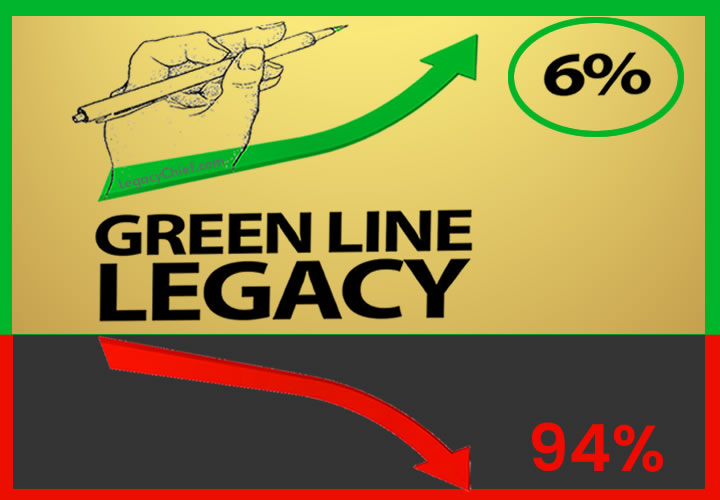Chief Legacy Officer

Have you checked with your Chief Legacy Officer in Your Rush to Retire?
Living a ‘legacy worthy” life is about who we are today so we experience life fully and live the legacy of how we want to be remembered.
Shared in multiple news outlets earlier in 2021 is Affluent Americans Rush to Retire in New ‘Life-Is-Short’ Mindset.
Whether or not you agree that the ‘Life-Is-Short’ Mindset is new, this attitude often arrives on the heels of tragedy.
Read more below from Michael Sasso and Alexandre Tanzi on Bloomberg:
About 2.7 million Americans age 55 or older are contemplating retirement years earlier than they’d imagined because of the pandemic, government data show. They’re more likely to be white, a group that typically has a larger amount of accumulated wealth, and many cite robust retirement accounts and COVID-19 fatigue for their early exit, according to interviews with wealth managers and federal surveys.
After a year of early morning Zoom calls, the specter of a deadly virus and soaring stock and real estate values, working American baby boomers who can afford it plan to get out while the getting’s good. The unprecedented surge in shares and home values during an economic crisis is easing the retirement path for those who have savings and investments.
Much like the U.S. economy’s so-called K-shaped recovery, the pandemic is treating the affluent differently, empowering them to leave corporate life early. Others who lost jobs had to delay retirement, or grew discouraged and retired before they were ready.
Early retirements, whether desired or forced, will deprive the labor market of some of its most productive workers and have an impact on the economic recovery that is still too early to evaluate. Federal Reserve Chairman Jerome Powell this week cited a “significant number” of people saying they’ve retired as one reason companies are reporting labor shortages, although it’s unclear if they’ll eventually rejoin the job market.
In the Minneapolis area, Craig DiLorenzo, 58, is among those who chose to bow out, after a career at industrial giant 3M Co. Frustrated over 6 a.m. teleconferences, his thoughts turned to spending more time pursuing his outside passions, including volunteering with the Salvation Army. A scare with cancer five years ago made him reconsider his commitment to climbing the corporate ladder, and the last year stuck at home only reinforced those feelings, he said.
“It makes you think, ‘Does all this matter as much as you think it does?’” said DiLorenzo, who retired at the end of March.
Lorenzo’s cohort is one better known for hanging onto their jobs as long as possible, usually retiring later than their European counterparts. Their potential exodus from the corporate world, combined with a sharp increase in the number of business owners seeking to retire sooner than they anticipated, is a worrying phenomenon for companies that rely on their accumulated expertise. In addition, burnout among older physicians and teachers is pushing some to an early exit, threatening shortages in health care and education.
Financial advisers say they’re seeing a new “life-is-short” attitude among clients with enough money socked away to carry them through retirement.
The prospect of going back to the daily grind is going to be “a really tough pill for a lot of people to swallow,” said Kenneth Van Leeuwen, founder of financial services firm Van Leeuwen & Co. in Princeton, New Jersey.
One client, an executive whose stock portfolio has performed well, is retiring at 48 as the prospect of having to go back to traveling 10 to 12 nights a month isn’t appealing anymore, Van Leeuwen said.
Forty miles west of Boston, Melissa Marteney got tired of working more with less as the pandemic dragged on. She helped oversee state parks for the Massachusetts Department of Conservation and Recreation and was tasked with hiring hundreds of lifeguards and other seasonal workers each spring. But even as people flocked to parks to escape COVID-19 lockdowns, the state cut the seasonal administrative staff that helped her screen candidates.
She retired this year at 58, about five years earlier than expected. Her husband also retired from his job at a financial services firm, and now the couple plan to sail to the Caribbean over winters in their 42-foot (12.8-meter) sailboat. By exiting early, she’ll collect a smaller payout from her pension, but the couple’s other retirement accounts have ballooned so much lately that “we’re going to be in the green until I’m 92.”
“I’ve seen so many people who have decided to wait too long to retire — many of my colleagues or older family members — and they get one year of retirement and get sick and pass on,” she said. “I don’t want that.”
A November study from Pew Research Center found a surge in the number of baby boomers, those born between 1946 and 1964, who reported being retired compared to previous years — 1.2 million more than the historical annual average.
Other datapoints back up the findings. The number of people expecting to work beyond age 67 fell to a record low of 32.9% last month, according to a New York Federal Reserve survey. And about 2.7 million workers age 55 and older plan to apply early for Social Security benefits — almost twice as many as the 1.4 million people in the same age group who anticipate working longer, according to a recent U.S. Census Bureau survey.
The unprecedented surge in shares and home values during an economic crisis is easing the retirement path for those who have investments. Assets for Americans ages 55 to 69 rose by $4.2 trillion in 2020, including a $2.2 trillion increase in corporate equities and mutual fund shares and a $250 billion gain in the value of private businesses, according to data from the Federal Reserve. Real estate assets soared by almost $750 billion for this group.
Concern that some or all of that wealth could evaporate has especially weighed on entrepreneurs who’ve been through the 2008 Great Recession. The number of business owners who say they plan to retire sooner than expected has doubled since last August, according to a survey by financial services firm Wilmington Trust.
“Dealing with two major economic events in less than 15 years may have them wondering if it’s time to take money off the table, especially as they near retirement,” said Stuart Smith, a national director of business value strategies at Wilmington Trust. The loss of older workers will hurt the labor market. Those workers have strong productivity, lower absenteeism and they can train and mentor newcomers, said Susan Weinstock, vice president of financial resilience programming at seniors advocacy group AARP in Washington, D.C.
“Older workers are especially strong in soft skills — things that develop over time and are difficult to teach,” she said.
The situation could become particularly acute in health care. Almost a third of physicians are over 60, the nonprofit Physicians Foundation said in a November paper, warning that burnout threatens to exacerbate an existing shortage, especially among scarce specialists.
In Bethesda, Maryland, orthopedic surgeon Stephen Rockower, while not young at 69, retired earlier than planned last summer after the pandemic scared away many of his patients.
“I realized that whenever things did turn back around, I didn’t have it in me to fight to build the practice back up,” he said. “If I were 45 years old, I would have had to do this, but at 69 I said, ‘I don’t have to do this anymore.’”
This story was originally published at bloomberg.com. Read it here.
More from Michael Sasso and Alexandre Tanzi article Seattle Times
The ‘great retirement’ disconnect that puzzles U.S. economists in 2022.
The pandemic pushed millions of older Americans out of the labor force. It should have spawned a surge in Social Security benefits applications — but it hasn’t.
Even though the pandemic pushed millions of older Americans out of the labor force, there has not been an increase in Social Security benefits applications. Perhaps because they aren’t retired.
The disconnect has economists wondering how many of these baby boomers might come back to the workforce — a key question when job openings have remained near record levels for months now.
Here’s a look at the data and the debate it has spurred:
The retired share of the population is now substantially higher than before COVID-19, according to a Federal Reserve analysis. About 2.6 million older workers retired above ordinary trends since the start of the pandemic two years ago, based on estimates by Miguel Faria e Castro, an economist at the Federal Reserve Bank of St. Louis.
Under the U.S.’s federal retirement program, eligible workers receive a percentage of their pre-retirement income in monthly payments from the government. Workers can start receiving Social Security payments at age 62, with full benefits coming at age 66 or 67 depending on their date of birth.
Despite the surge in baby boomers saying in surveys they retired, applications for Social Security benefits have been fairly flat, based on calculations by the Boston College Center for Retirement Research. Around 0.1% of the U.S. population 55 and older have applied each month, which is consistent with what was happening before the pandemic.
The lack of Social Security filings is a bit of a mystery for Laura Quinby, a senior research economist at the Center for Retirement Research. Older Americans often feel the need to apply for benefits in person, so the closure of the Social Security Administration’s local offices during the pandemic might have dissuaded some from applying.
Others might be waiting to reach their late 60s to be eligible for full benefits, Quinby said. Thanks to the COVID-era boom in stock and real estate values, individuals who own assets and have savings can afford to delay applying.
The surge in assets made this an “opportune time for some workers to step out of the labor force and stay out of the labor force,” said Lowell Ricketts, data scientist for the Institute for Economic Equity at the St. Louis Fed.
“But we’re still expecting a steady, steady trend that some might want to come back,” he said, especially with the advent of remote and hybrid work, which may lure seniors back to the job market.
Unlike in other developed countries, retirement isn’t necessarily a permanent shift in the United States. Before COVID, it wasn’t uncommon that Americans would “un-retire,” out of financial hardship or personal choice. It’s too early to tell whether the pandemic has changed that dynamic.
The Social Security Administration’s Office of the Chief Actuary suggested older people may have “retired” from one job and continued working in another. That would explain why they’re not applying for benefits.
And people under 62 wouldn’t qualify for Social Security anyway. Among them is Hope Cabot, 61, who left her teaching job in Roswell, Georgia, in December. The stress of caring for a mother and of having to teach virtually pushed her to retire sooner than she anticipated. She plans to be a substitute teacher to stay busy and bring in some extra cash to help keep up with high inflation, she said.
“During the pandemic, it was crazy,” she said. “I was not planning on retiring until the end of this year or the end of next year.”
So far Bureau of Labor Statistics data on labor participation show that some baby boomers have come back, while many are remaining on the sidelines.
It’s possible that COVID-19 has led to a reckoning for a generation that reached retirement age when a global pandemic hit their age group disproportionally.
“Just as is the case with younger workers who have seen opportunities to think differently about their lives, people in this demographic are thinking, ‘What do I really want to do with my life,’” said Doug Dickson, who chairs the Encore Boston Network, which helps older workers find a job or volunteer opportunities. “Are they really retired or are they just defaulting to that language because it’s the easiest way to characterize it?”
Live a legacy-worthy life: Craft the narrative of your unique life today by wholeheartedly pursuing the vision of your enhavim endeavor.
Legacy is Relevancy.
Legacy is Reputation.
Legacy is Remembrance.
LEGACY IS LONGEVITY.
Masterwork.Ventures






